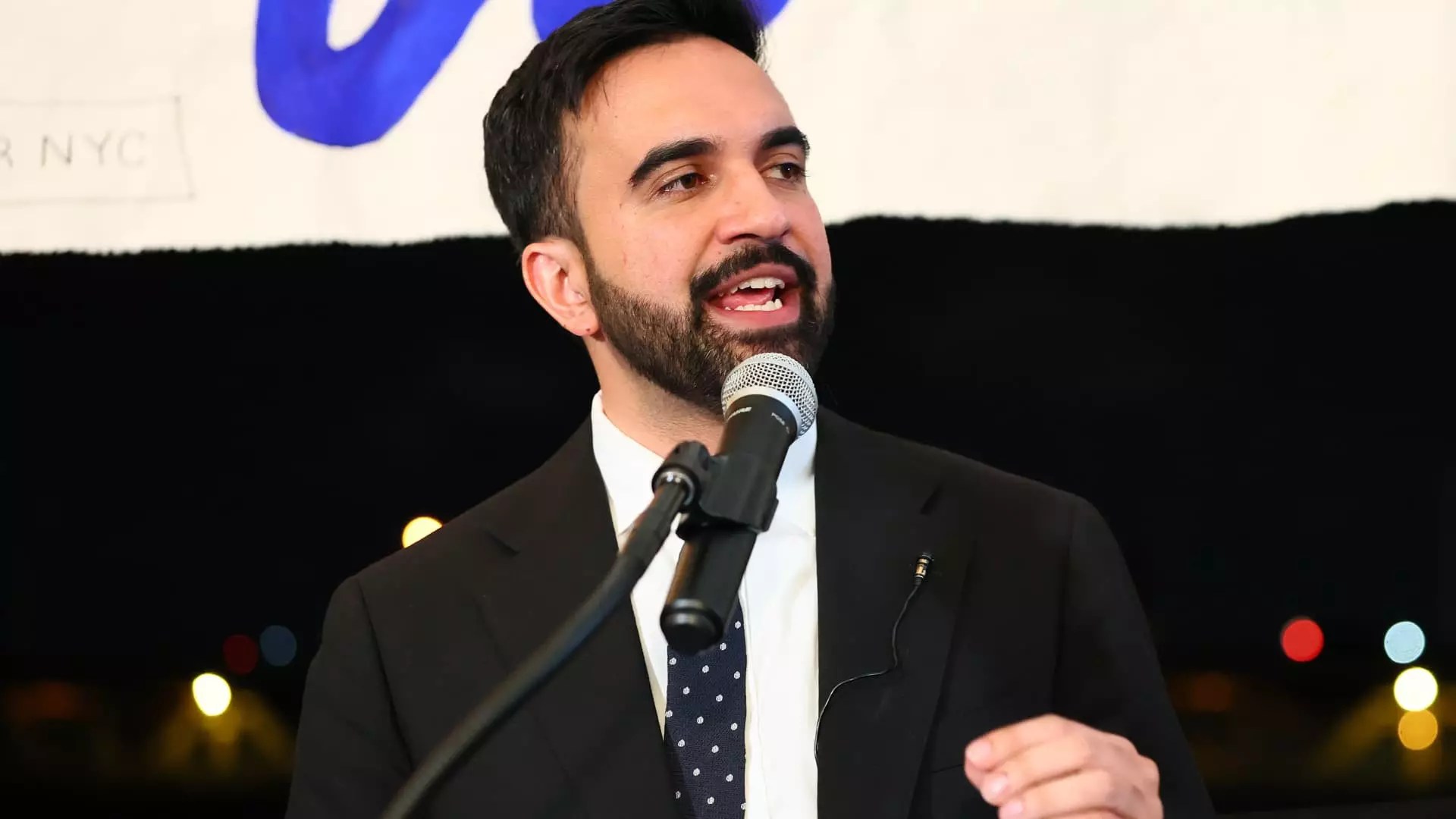In the unpredictable landscape of American finance, regional banks often find themselves exposed to the whims of politics. The recent decline of Flagstar Bank’s shares—plummeting 6% following Zohran Mamdani’s apparent victory in the New York City Democratic mayoral primary—exemplifies this precarious relationship. Mamdani’s campaign has advocated for an audacious freeze on rent increases in regulated apartments, triggering a wave of panic among stakeholders in the real estate and banking sectors. As the specter of regulatory changes looms large, analysts are already sounding alarms about the potential repercussions for Flagstar’s future.
Flagstar, formerly New York Community Bancorp, emerged from 2024 with its real estate portfolio under significant pressure. The latest developments reveal an unsettling truth: the intertwined fates of policymakers and financial institutions can alter investor sentiment in a heartbeat. When a candidate with progressive ideas like Mamdani ascends the political ladder, caution—if not alarm—becomes the watchword for investors.
Real Estate Vulnerabilities and Their Financial Fallout
The core of Flagstar’s financial vulnerabilities lies within its exposure to the multi-family rental market in New York City. Deutsche Bank’s analyst, Bernard von-Gizycki, has quantified the bank’s risk, estimating that between $16 billion and $18 billion of its multi-family loan portfolio is susceptible to changing rent regulations—a sobering number that accounts for about a quarter of the bank’s entire loan book. However, as analysts wrestle with the implications, Morgan Stanley’s Manan Gosalia presents a slightly less grave outlook, suggesting the risk could narrow down to a more manageable $11 billion to $12 billion when isolating properties with dominant rent-regulated units.
The stark contradiction between these estimates illuminates a fundamental challenge: how unpredictable government decisions can first rattle and then reshape financial landscapes. A swift and sudden rent freeze not only undermines the profit potential across Flagstar’s portfolio but pricks the balloon of optimism that investors are desperate to inflate. The vulnerability of the bank’s financial model to regulatory shifts raises major questions about the sustainability of its business strategy.
Mamdani’s Progressive Policies: A Threat to Investment Climate
As Mamdani rallies support with promises of halting rent increases—a policy he claims will alleviate living costs for residents—the implications for real estate profits are ominous. A freeze could dampen the rental income flowing into multi-family properties, thereby squeezing the lending capabilities of banks like Flagstar. The intersection of Mamdani’s progressive agenda and the realities of financial health cannot be overstated; hesitation will run rampant throughout the investment community, pushing shares down further as risk perceptions spiral.
Barclays analyst Jared Shaw weighed in on this growing fear, indicating that current rent regulations are already limiting pricing growth relative to increasing operational costs. Unfortunately, this reasoning doesn’t alleviate the concerns surrounding speculative long-term outcomes. The prospect of prolonged rent freezes necessitates re-evaluating lending strategies and risk exposure, potentially leading banks to bolster their loan loss reserves amid an increasingly hostile business environment.
Political Landscape: A Double-Edged Sword for Businesses
Mamdani’s policies aren’t just likely to affect Flagstar; the ramifications stretch across the private sector in a broader sense. His calls for higher corporate tax rates, although limited in practical impact, signal a growing trend in the governance of markets. New York City’s vibrant business ecosystem could find itself shackled by policies crafted in the name of social equity but ultimately diverging from economic pragmatism. While progressive platforms often promise fairness, when dissected through a fiscal lens, they may breed angst rather than prosperity.
The mayoral landscape has also birthed heightened uncertainties, given that Mamdani is set to face off against Republican nominee Curtis Sliwa and several independent figures, including current Mayor Eric Adams. This scenario poses additional complexity, as competing visions for New York City’s future clash head-on. Investors often thrive in stable political climates; tumultuous shifts can hinder growth by steering both money and opportunity away from the city.
As the dust settles from the primary results, Gatekeepers of finance, like Flagstar, must reassess their strategies and redefine their resilience in a city that seems increasingly at odds with its business owners. Amid the swirling concerns, one thing is abundantly clear: the delicate interplay between politics and finance has never felt more fragile.


Leave a Reply